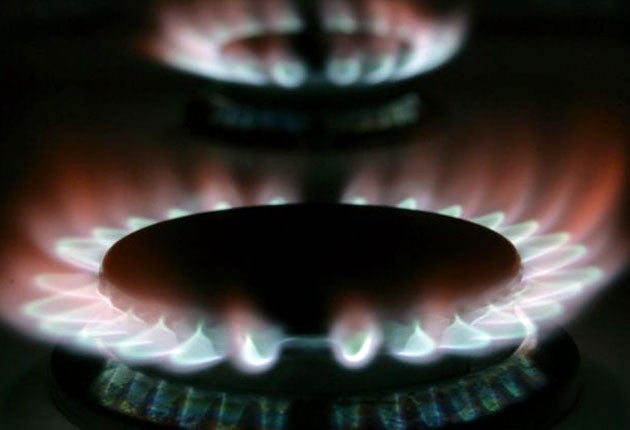Family well-being and health hit by heating costs
A shock report reveals that fuel poverty is affecting desperate families – and their children

Your support helps us to tell the story
From reproductive rights to climate change to Big Tech, The Independent is on the ground when the story is developing. Whether it's investigating the financials of Elon Musk's pro-Trump PAC or producing our latest documentary, 'The A Word', which shines a light on the American women fighting for reproductive rights, we know how important it is to parse out the facts from the messaging.
At such a critical moment in US history, we need reporters on the ground. Your donation allows us to keep sending journalists to speak to both sides of the story.
The Independent is trusted by Americans across the entire political spectrum. And unlike many other quality news outlets, we choose not to lock Americans out of our reporting and analysis with paywalls. We believe quality journalism should be available to everyone, paid for by those who can afford it.
Your support makes all the difference.Four out of five low-income families struggled to pay their energy bills last year. While politicians are busy making empty pre-election promises about gas and electricity prices and the big suppliers are crowing about tiny price cuts, real people are facing health and well-being issues.
A shock report published today by charity Turn2us shows that fuel poverty is alive and well and having a negative impact on children. Three-quarters of parents say being unable to afford to heat their home adequately is hitting the health of their children while more than half say their children’s school work has suffered because of cold homes.
Frighteningly, more than three-fifths of families are cutting back on food while more than half claim that the family diet has suffered, further putting their well-being at risk. As a result, almost half have experienced illness because of their cold homes, while three out of five are currently planning to cut the temperature of their homes even further despite entering the coldest time of year.
Finances are suffering, too, with problem debt just around the corner. One in six desperate families admit they are considering taking out a payday loan to cover the energy costs they are unable to meet.
Yesterday, one of the Big Six firms announced that it is cutting its bills by 3.5 per cent. That’ll give the average energy home user an extra £24 in their pocket, but even after the price cut, someone on the company’s standard tariff with typical usage will still be paying £1,145 a year. In other words, the £24 won’t make much of a dent in their debt woes.
Alison Taylor, director of Turn2us said: "More people than ever before are worried about finding the money to pay for their energy bills. People have no option but to cut back on essentials and borrow money.
"It’s alarming that for the first time in a decade, more than one million families are struggling in fuel poverty, and at the same time the poorest fifth of households have seen the amount they spend on energy leap up. With cold homes affecting children’s health and even their attainment at school, they risk being caught in a cycle of poverty as they grow up."
The charity is launching a new "Cut out the Cold" campaign today to highlight the help that struggling people can get with energy costs. Its research suggests that seven out of 10 families have never heard of the Warm Home Discount scheme, for instance, which hands hard-up folk a £140 discount on their electricity bill. The research also reveals that half of hard-up families have not checked their eligibility for benefits while almost nine out of 10 have not checked what free charitable grants may exist.
"We need to see more done to help raise awareness of the financial support and help available to manage energy bills," said Alison Taylor. It is vital that people on low incomes are not left behind.”
In fact, one of the easiest ways to cut energy bills is to switch suppliers. Even those celebrating the 3.5 per cent cut by E.on could save even more by switching to the firm’s own new fixed deal launched yesterday and save a further 19 per cent, or an average £212. Or energy users could consider moving away from the Big Six altogether for even bigger savings: extraenergy’s Bright Fixed Price March 2016 v1, for example, could save up to £400 a year on average if you’ve never switched supplier.
And switching is getting easier and quicker. Energy companies have cut the time it takes to switch between suppliers to 17 days, down from 5 weeks last year, according to a report from the Department of Energy and Climate Change published today while the Energy Secretary, Ed Davey, challenged the energy giants: "The job is not done for energy suppliers. They must offer 24-hour switching for consumers as quickly as possible."
Join our commenting forum
Join thought-provoking conversations, follow other Independent readers and see their replies
Comments